- Home
- Patricia Cornwell
Point of Origin ks-9 Page 14
Point of Origin ks-9 Read online
Page 14
He talked on as he walked.
'Every group is so angry these days they don't realize how much they're hurting themselves. If we don't learn from the dead, who do we learn from?'
'Alex, you're singing to the choir,' I said.
'Yeah, well, if it was my great-grandfather in one of these drawers,' Marino retorted, 'I'm not so sure I'd feel too good about that.'
'But the point is we don't know who is in these drawers, and neither do any of the people who are upset,' said Vessey. 'What we do know is that these specimens have helped us know a lot more about the diseases of the American Indian population, which is clearly a benefit to those now feeling threatened. Oh well, don't get me started.'
Where Vessey worked was a series of small laboratory rooms that were a jumble of black counter space and sinks, and thousands of books and boxes of slides, and professional journals. Displayed here and there were the usual shrunken heads and shattered skulls and various animal bones mistaken as human. On a corkboard were large, painful photographs of the aftermath of Waco, where Vessey had spent weeks recovering and identifying the decomposing burned remains of Branch Davidians.
'Let's see what you've got for me,' Vessey said.
I set my package on a counter and he slit the tape with a pocket knife. Styrofoam rattled as I dug out the cranium, then the very fragile lower portion of the skull that included the bones of the face. I set these on a clean blue cloth and he turned on lamps and fetched a lens.
'Right here,' I directed him to the fine cut on bone. 'It corresponds with hemorrhage in the temporal area. But around it, the flesh was too burned for me to tell anything about what sort of injury we were dealing with. I didn't have a clue until I found this on the bone.'
'A very straight incision,' he said as he slowly turned the skull to look at it from different angles. 'And we're certain this wasn't perhaps accidentally done during autopsy, when, for example, the scalp was reflected back to remove the skull cap?'
'We're certain,' I said. 'And as you can see by putting the two together' - I fit the cranium back in place - 'the cut is about an inch and a half below where the skull was opened during autopsy. And it's an angle that would make no sense if one were reflecting back the scalp. See?'
My index finger was suddenly huge as I looked through the lens and pointed.
'This incision is vertical versus horizontal,' I made my case.
'You're right,' he said, and his face was vibrant with interest. 'As an artifact of autopsy, that would make no sense at all, unless your morgue assistant was drunk.'
'Could it be maybe some kind of defense injury?' Marino suggested. 'You know, if someone was coming at her with a knife. They struggle and her face gets cut?'
'Certainly that's possible,' Vessey said as he continued to process every millimeter of bone. 'But I find it curious that this incision is so fine and exact. And it appears to be the same depth from one end to the other, which would be unusual if one is swinging a knife at someone. Generally, the cut to bone would be deeper where the blade struck first, and then more shallow as the blade traveled down.'
He demonstrated, an imaginary knife cutting straight down through air.
'We also have to remember that a lot depends on the assailant's position in relation to the victim when she was cut,' I commented. 'Was the victim standing or lying down? Was the assailant in front or behind or to one side of her or on top of her?'
'Very true,' said Vessey.
He went to a dark oak cabinet with glass doors and lifted an old brown skull from a shelf. He carried it over to us and handed it to me, pointing to an obvious coarse cut in the left parietal and occipital area, or on the left side, high above the ear.
'You asked about scalpings,' he said to me. 'An eight- or nine-year-old, scalped, then burned. Can't tell the gender, but I know the poor kid had a foot infection. So he or she couldn't run. Cuts and nicks like this are fairly typical in scalpings.'
I held the skull and for a moment imagined what Vessey had just said. I envisioned a cowering crippled child, and blood running to the earth as his screaming people were massacred and the camp went up in flames.
'Shit,' Marino muttered angrily. 'How do you do something like that to a kid?'
'How do you do something like that at all?' I said. Then to Vessey, I added, 'The cut on this' - I pointed at the skull I had brought in - 'would be unusual for a scalping.'
Vessey took a deep breath and slowly blew out.
'You know, Kay,' he said, 'it's never exact. It's whatever happened at the time. There were many ways that Indians scalped the enemy. Usually, the skin was incised in a circle over the skull down to the galea and periosteum so it could be easily removed from the cranial vault. Some scalpings were simple, others involved ears, eyes, the face, the neck. In some instances multiple scalps were taken from the same victim, or maybe just the scalplock, or small area of the crown of the head, was removed. Finally, and this is what you usually see in old westerns, the victim was violently grabbed by his hair, the skin sliced away with a knife or saber.'
'Trophies,' Marino said.
'That and the ultimate macho symbol of skill and bravery,' said Vessey. 'Of course, there were cultural, religious, and even medicinal motives, as well. In your case,' he added to me, 'we know she wasn't successfully scalped because she still had her hair, and I can tell you the injury to bone strikes me as having been inflicted carefully with a very sharp instrument. A very sharp knife. Maybe a razor blade or box cutter, or even something like a scalpel. It was inflicted while the victim was alive and it was not the cause of death.'
'No, her neck injury is what killed her,' I agreed.
'I can find no other cuts, except possibly here.'
He moved the lens closer to an area of the left zygomatic arch, or bone of the cheek. 'Something very faint,' he muttered. 'Too faint to be sure. See it?'
I leaned close to him to look.
'Maybe,' I said. 'Almost like the thread of a spider web.'
'Exactly. It's that faint. And it may be nothing, but interestingly enough, it's positioned at very much the same angle as the other cut. Vertical versus horizontal or slanted.'
'This is getting sick,' Marino said ominously. 'I mean, let's cut to the chase, no pun intended. What are we saying here? That some squirrel cut this lady's throat and then mutilated her face? And then torched the house?'
'I guess that's one possibility,' Vessey said.
'Well, mutilating a face gets personal,' Marino went on. 'Unless you're dealing with a loony tune, you don't find killers mutilating the faces of victims they don't have some sort of connection with.'
'As a rule, this is true,' I agreed. 'In my experience where it hasn't been true is when the assailant is very disorganized and turns out to be psychotic.'
'Whoever burned Sparkes's farm was anything but disorganized, you ask me,' Marino said.
'So you're contemplating that this might be a homicide of a more domestic nature,' Vessey said, now slowly scanning the cranium with the lens.
'We have to contemplate everything,' I said. 'But if nothing else, when I try to imagine Sparkes killing all his horses, I just can't see it.'
'Maybe he had to kill them to get away with murder,' Marino said. 'So people would say what you just did.'
'Alex,' I said, 'whoever did this to her made very sure we would never find a cut mark. And were it not for a glass door falling on top of her, there probably would have been virtually nothing of her left that would have given us any clue as to what happened. If we had recovered no tissue, for example, we wouldn't have known she was dead before the fire because we wouldn't be able to get a CO level. So what happens? She gets signed out as an accidental death, unless we prove arson, which so far we've been unable to do.'
'There's no doubt in my mind that this is a classic case of arson-concealed homicide,' Vessey said.
'Then why the hell hang around to cut on somebody?' Marino said. 'Why not kill her and torch the joint and run like hell? A
nd usually when these whackos mutilate, they get off on people seeing their handiwork. Hell, they display the bodies in a park, on a hillside next to a road, on a jogging trail, in the middle of the living room, right there for all to see.'
'Maybe this person doesn't want us to see,' I said. 'It's very important that we not know he left a signature this time. And I think we need to run as exhaustive a computer search as we can, to see if anything even remotely similar to this has turned up anywhere else.'
'You do that, and you bring in a lot of other people,' Marino said. 'Programmers, analysts, guys who run the computers at the FBI and big police departments like Houston, L.A., and New York. I guarantee you, someone's going to spill the beans and next thing this shit's all over the news.'
'Not necessarily,' I said. 'It depends on who you ask.'
We caught a cab on Constitution and told the driver to head toward the White House and cut over to the six hundred block of Fifteenth Street. I intended to treat Marino to the Old Ebbitt Grill, and at half past five, we did not have to wait in line but got a green velvet booth. I had always found a special pleasure in the restaurant's stained glass, mirrors, and brass gas lamps wavering with flames. Turtles, boars, and antelopes were mounted over the bar, and the bartenders never seemed to slow down no matter the time of day.
A distinguished-looking husband and wife behind us were talking about Kennedy Center tickets and their son's entering Harvard in the fall, while two young men debated whether lunch could go on the expense account. I parked my cardboard box next to me on the seat. Vessey had resealed it with yards of tape.
'I guess we should have asked for a table for three,' Marino said, looking at the box. 'You sure it doesn't stink? What if someone caught a whiff of it in here?'
'It doesn't stink,' I said, opening my menu. 'And I think it would be wise to change the subject so we can eat. The burger here is so good that even I break down now and then and order it.'
'I'm looking at the fish,' he said with great affectation. 'You ever had them here?'
'Go to hell, Marino.'
'All right, you talked me into it, Doc. Burger it is. I wish it were the end of the day so I could have a beer. It's torture to come to a joint like this and not have Jack Black or a tall one in a frosted mug. I bet they make mint juleps. I haven't had one of those since I was dating that girl from Kentucky. Sabrina. Remember her?'
'Maybe if you describe her,' I said absently as I looked around and tried to relax.
'I used to bring her into the FOP. You was in there once with Benton, and I came over and introduced her. She had sort of reddish blond hair, blue eyes, and pretty skin. She used to roller skate competitively?'
I had no earthly idea whom he was talking about.
'Well' - he was still studying the menu - 'it didn't last very long. I don't think she would have given me the time of day if it wasn't for my truck. When she was sitting high in that king cab you would've thought she was waving at everybody from a float in the Rose Bowl parade.'
I started laughing, and the blank expression on his face only made matters worse. I was laughing so hard my eyes were streaming and the waiter paused and decided to come back later. Marino looked annoyed.
'What's wrong with you?' he said.
'I guess I'm just tired,'' I said, gasping. 'And if you want a beer, you go right ahead. It's your day off and I'm driving.'
This improved his mood dramatically, and not much later he was draining his first pint of Samuel Adams while his burger with Swiss and my chicken Caesar salad were served. For a while we ate and drifted in and out of a conversation while people around us talked loudly and nonstop.
'I said, do you want to go away for your birthday?' one businessman was telling another. 'You're used to going wherever you want.'
'My wife's the same way,' the other businessman replied as he chewed. 'Acts like I never take her anywhere. Hell, we go out to dinner almost every week.'
'I saw on Oprah that one out of ten people owe more money than they can pay,' an older woman confided to a companion whose straw hat was hanging from the hat rack by their booth. 'Isn't that wild?'
'Doesn't surprise me in the least. It's like everything else these days.'
'They do have valet parking here,' one of the businessmen said. 'But I usually walk.'
'What about at night?'
'Shooo. Are you kidding? In D.C.? Not unless you got a death wish.'
I excused myself and went downstairs to the ladies' room, which was large and built of pale gray marble. No one else was there, and I helped myself to the handicap stall so I could enjoy plenty of space and wash my hands and face in private. I tried to call Lucy from my portable phone, but the signal seemed to bounce off walls and come right back. So I used a pay phone and was thrilled to find her at home.
'Are you packing?' I asked.
'Can you hear an echo yet?' she said.
'Ummm. Maybe.'
'Well, I can. You ought to see this place.'
'Speaking of that, are you up for visitors?'
'Where are you?' Her tone turned suspicious.
'The Old Ebbitt Grill. At a pay phone downstairs by the restrooms, to be exact. Marino and I were at the Smithsonian this morning, seeing Vessey. I'd like to stop by. Not only to see you, but I have a professional matter to discuss.'
'Sure,' she said. 'We're not going anywhere.'
'Can I bring anything?'
'Yeah. Food.'
There was no point in retrieving my car, because Lucy lived in the northwest part of the city, just off Dupont Circle, where parking would be as bad as it was everywhere else. Marino whistled for a cab outside the grill, and one slammed on its brakes and we got in. The afternoon was calm and flags were wilted over roofs and lawns, and somewhere a car alarm would not stop. We had to drive through George Washington University, past the Ritz and Blackie's Steakhouse to reach Lucy and Janet's neighborhood.
The area was bohemian and mostly gay, with dark bars like The Fireplace and Mr P's that were always crowded with well-built, body-pierced men. I knew, because I had been here many times in the past to visit my niece, and I noted that the lesbian bookstore had moved and there seemed to be a new health food store not too far from Burger King.
'You can let us out here,' I said to the driver.
He slammed on the brakes again and swerved near the curb.
'Shit,' Marino said as the blue cab raced away. 'You think there's any Americans in this town?'
'If it wasn't for non-Americans in towns like this, you and I wouldn't be here,' I reminded him.
'Being Italian's different.'
'Really? Different from what?' I asked at the two thousand block of P Street, where we entered the D.C. Cafe.
'From them,' he said. 'For one thing, when our people got off the boat on Ellis Island, they learned to speak English. And they didn't drive taxi cabs without knowing where the hell they was going. Hey, this place looks pretty good.'
The cafe was open twenty-four hours a day, and the air was heavy with sauteing onions and beef. On the walls were posters of gyros, green teas, and Lebanese beer, and a framed newspaper article boasted that the Rolling Stones had once eaten here. A woman was slowly sweeping as if it were her mission in life. She paid us no mind.
'You relax,' I said to Marino. 'This shouldn't take but a minute.'
He found a table to smoke while I went up to the counter and studied the yellow lit-up menu over the grill.
'Yes,' said the cook as he pressed sizzling beef and slapped and cut and tossed browning chopped onions.
'One Greek salad,' I said. 'And a chicken gyro in pita and, let me see.' I perused. 'I guess a Kefte Kabob Sandwesh. I guess that's how you say it.'
'To go?'
'Yes.'
'I call you,' he said as the woman swept.
I sat down with Marino. There was a TV, and he was watching Star Trek through a swarm of loud static.
'It's not going to be the same when she's in Philly,' he said.
'It won't be.'
I stared numbly at the fuzzy form of Captain Kirk as he pointed his phaser at a Klingon or something.
'I don't know,' he said, resting his chin in his hand as he blew out smoke. 'Somehow it just don't seem right, Doc. She had everything all figured out and had worked hard to get it that way. I don't care what she says about her transferring, I don't think she wants to go. She just doesn't believe she's got a choice.'
'I'm not sure she does if she wants to stay on the track she's chosen.'
'Hell, I believe you always got a choice. You see an ashtray anywhere?'
I spotted one on the counter and carried it over.
'I guess now I'm an accomplice,' I said.
'You just nag me because it gives you something to do.'
'Actually, I'd like you to hang around for a while, if that's all right with you,' I said. 'It seems I spend half my time trying to keep you alive.'
'That's kind of an irony considering how you spend the rest of your time, Doc.'
'Your order!' the cook called out.
'How 'bout getting me a couple of those baklava things. The one with pistachios.'
'No,' I said.
9
LUCY AND JANET lived in a ten-story apartment building called The Westpark that was in the two thousand block of P Street, a few minutes' walk away. It was tan brick with a dry cleaner downstairs and the Embassy Mobile station next door. Bicycles were parked on small balconies, and young tenants were sitting out enjoying the balmy night, drinking and smoking, while someone practiced scales on a flute. A shirtless man reached out to shut his window. I buzzed apartment 503.
'Who goes there?' Lucy's voice came over the intercom.
'It's us,' I said.
'Who's us?'
'The us with your dinner. It's getting cold,' I said.
The lock clicked free to let us into the lobby, and we took the elevator up.
'She could probably have a penthouse in Richmond for what she pays to live here,' Marino commented.
'About fifteen hundred a month for a two-bedroom.'
'Holy shit. How's Janet going to make it alone? The Bureau can't be paying her more than forty grand.'

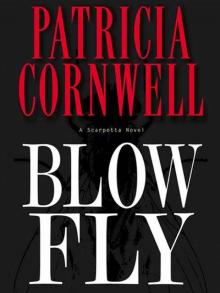 Blow Fly
Blow Fly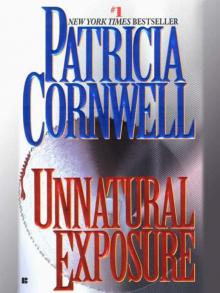 Unnatural Exposure
Unnatural Exposure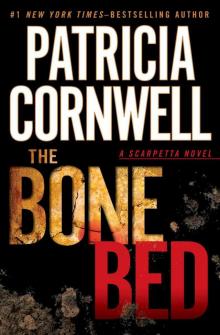 The Bone Bed
The Bone Bed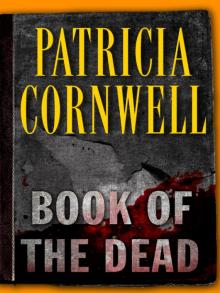 Book of the Dead
Book of the Dead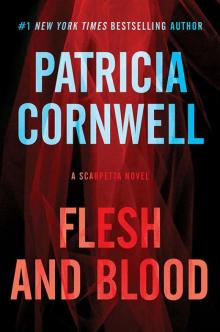 Flesh and Blood: A Scarpetta Novel (Scarpetta Novels Book 22)
Flesh and Blood: A Scarpetta Novel (Scarpetta Novels Book 22)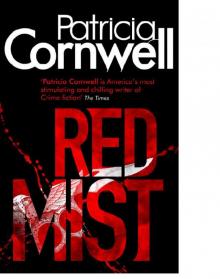 Red Mist
Red Mist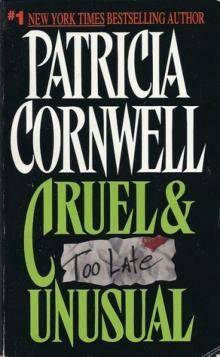 Cruel & Unusual
Cruel & Unusual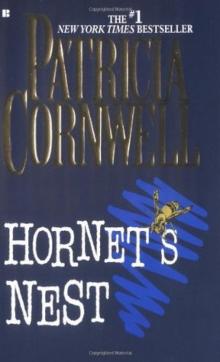 Hornet's Nest
Hornet's Nest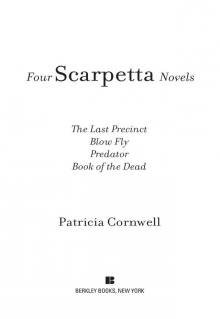 Four Scarpetta Novels
Four Scarpetta Novels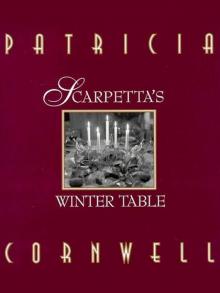 Scarpetta's Winter Table
Scarpetta's Winter Table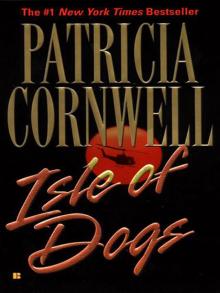 Isle of Dogs
Isle of Dogs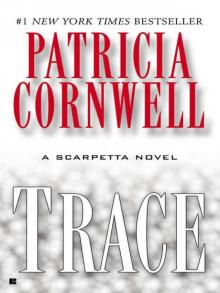 Trace
Trace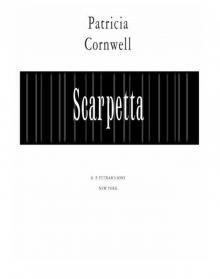 Postmortem
Postmortem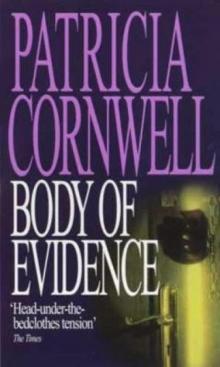 Body of Evidence ks-2
Body of Evidence ks-2 Southern Cross
Southern Cross All That Remains
All That Remains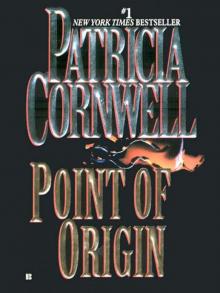 Point of Origin
Point of Origin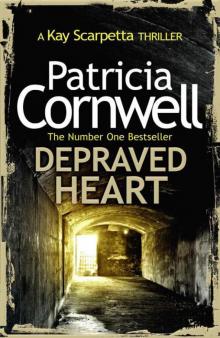 Depraved Heart
Depraved Heart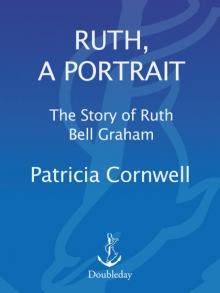 Ruth, a Portrait: The Story of Ruth Bell Graham
Ruth, a Portrait: The Story of Ruth Bell Graham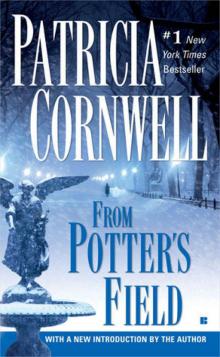 From Potter's Field
From Potter's Field Flesh and Blood
Flesh and Blood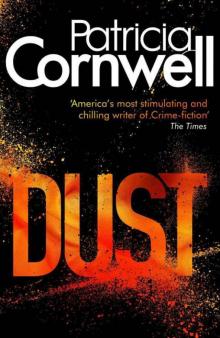 Dust
Dust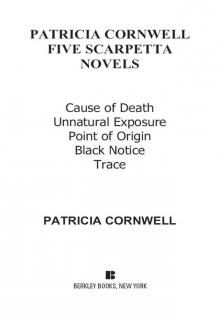 The Body Farm
The Body Farm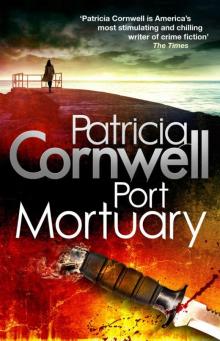 Port Mortuary
Port Mortuary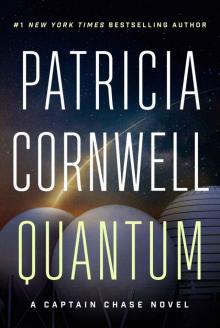 Quantum
Quantum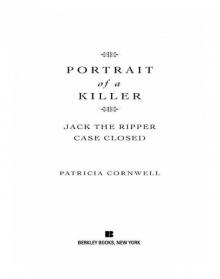 Portrait of a Killer: Jack the Ripper - Case Closed
Portrait of a Killer: Jack the Ripper - Case Closed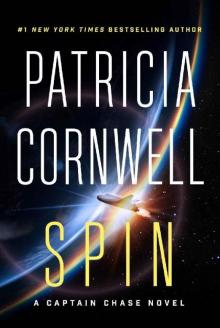 Spin (Captain Chase)
Spin (Captain Chase)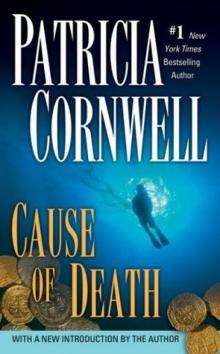 Cause of Death
Cause of Death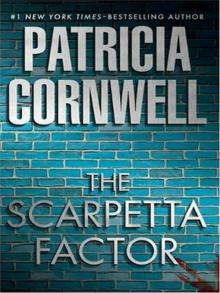 The Scarpetta Factor
The Scarpetta Factor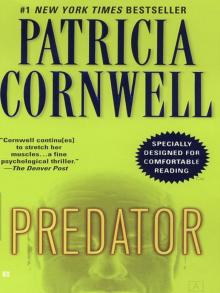 Predator
Predator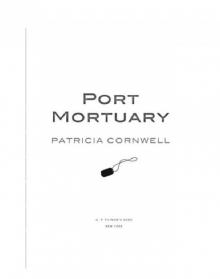 Scarpetta 18 - Port Mortuary
Scarpetta 18 - Port Mortuary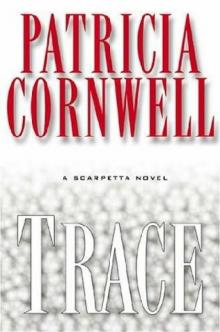 Trace ks-13
Trace ks-13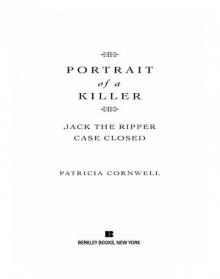 Portrait of a Killer
Portrait of a Killer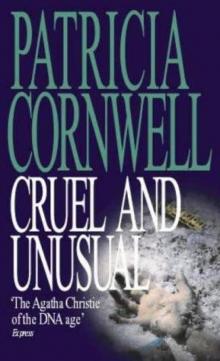 Cruel and Unusual ks-4
Cruel and Unusual ks-4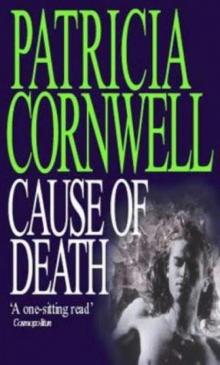 Cause Of Death ks-7
Cause Of Death ks-7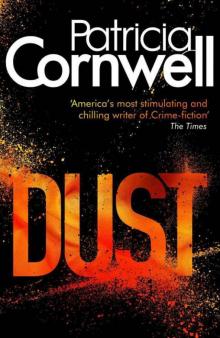 Dust ks-21
Dust ks-21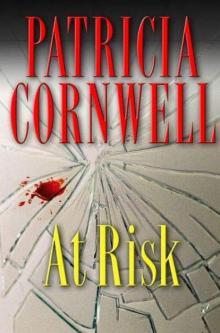 At Risk wg-1
At Risk wg-1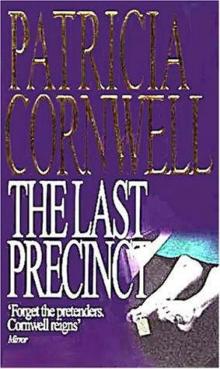 The Last Precinct ks-11
The Last Precinct ks-11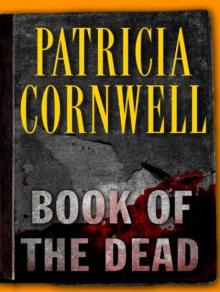 Book of the Dead ks-15
Book of the Dead ks-15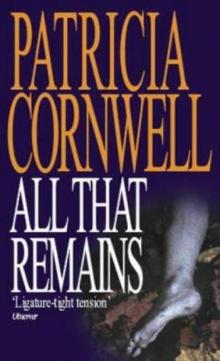 All That Remains ks-3
All That Remains ks-3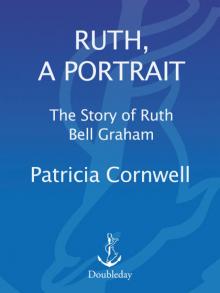 Ruth, a Portrait
Ruth, a Portrait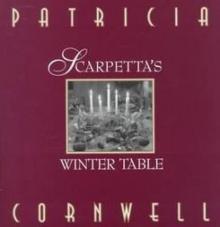 Scarpetta's Winter Table (kay scarpetta)
Scarpetta's Winter Table (kay scarpetta)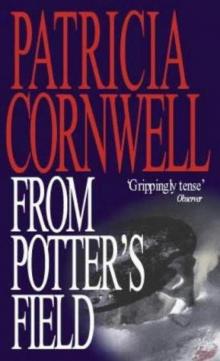 From Potter's Field ks-6
From Potter's Field ks-6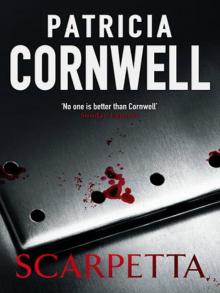 Scarpetta
Scarpetta Isle of Dogs jhabavw-3
Isle of Dogs jhabavw-3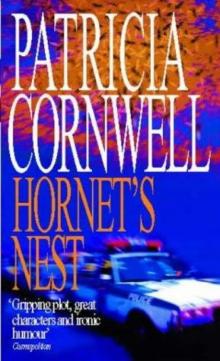 Hornet's Nest jhabavw-1
Hornet's Nest jhabavw-1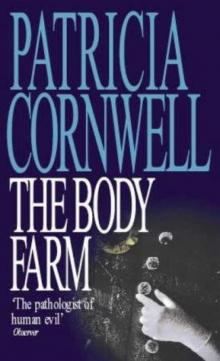 The Body Farm ks-5
The Body Farm ks-5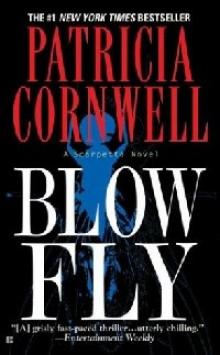 Blow Fly ks-12
Blow Fly ks-12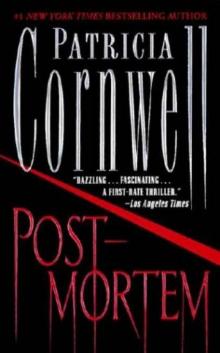 Post Mortem
Post Mortem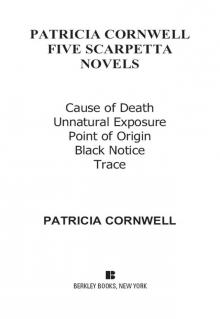 Five Scarpetta Novels
Five Scarpetta Novels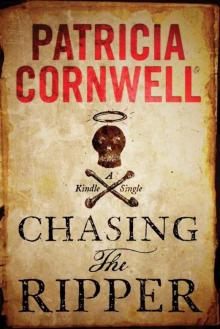 Chasing the Ripper (Kindle Single)
Chasing the Ripper (Kindle Single)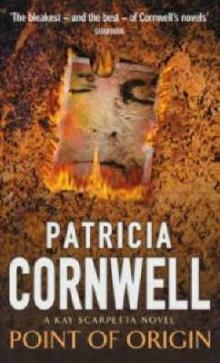 Point of Origin ks-9
Point of Origin ks-9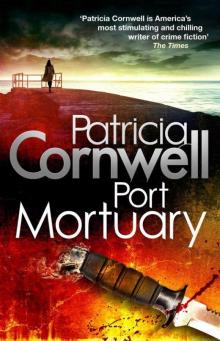 Port Mortuary (2010)
Port Mortuary (2010)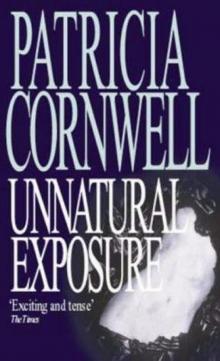 Unnatural Exposure ks-8
Unnatural Exposure ks-8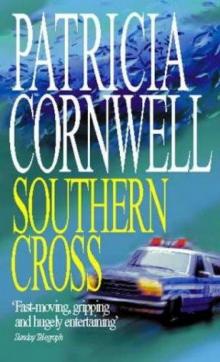 Southern Cross uhabavw-2
Southern Cross uhabavw-2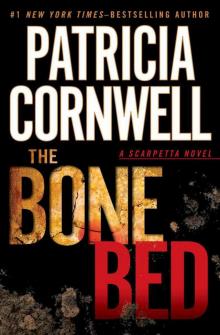 The Bone Bed ks-20
The Bone Bed ks-20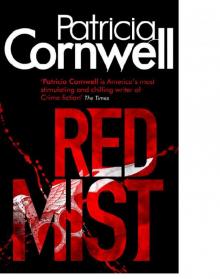 Red Mist ks-19
Red Mist ks-19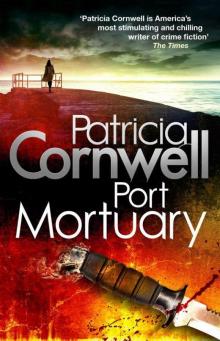 Port Mortuary (2010) ks-18
Port Mortuary (2010) ks-18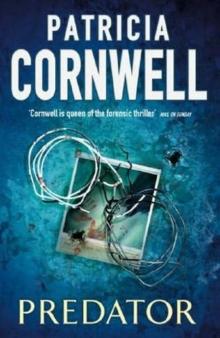 Predator ks-14
Predator ks-14